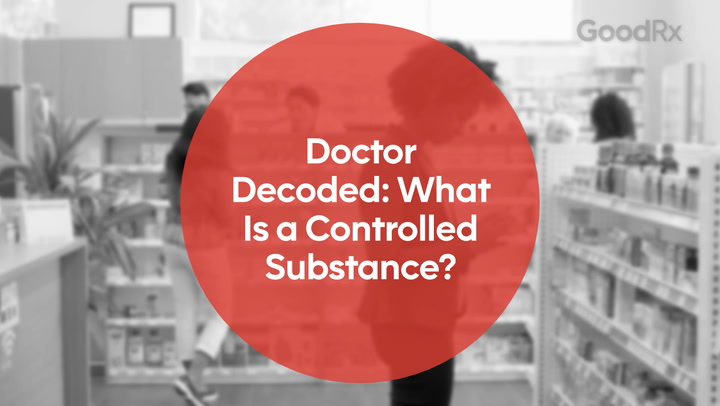
9 Alprazolam Interactions You Should Know About
Key takeaways:
Alprazolam (Xanax) is a benzodiazepine medication that’s often prescribed for anxiety and panic disorder. It has multiple interactions to be aware of.
Alprazolam can cause drowsiness and other sedating effects. You raise the risk of these effects if you combine it with alcohol. You should also be wary of other medications that share these side effects, such as tramadol (ConZip) or cyclobenzaprine (Amrix).
You should review your medication list with your healthcare team before starting alprazolam. This will help them spot and manage alprazolam interactions before they happen.
Table of contents

For many people living with anxiety, medication is a helpful part of their treatment plan. One option is alprazolam (Xanax). It’s a commonly prescribed anxiety medication known as a benzodiazepine. It also treats panic disorder.
When taking any medication, one thing to keep in mind is the possibility of interactions. And alprazolam is no exception. Some medications can make this benzodiazepine less effective. But others can raise the risk of side effects, such as dizziness or drowsiness.
So which alprazolam interactions should you watch out for? Below, we’ll discuss nine of them.
Keep in mind: This isn’t a full list of interactions that are possible with alprazolam. Make sure your pharmacist and prescriber both have a full list of medications and supplements that you take. They can check for other possible interactions.
1. Opioids, such as oxycodone
Alprazolam is a central nervous system (CNS) depressant. This means it has a calming effect throughout the brain and body. Opioid pain medications — such as oxycodone (Roxicodone, OxyContin, Xtampza ER) and tramadol (ConZip) — also have sedating effects. Taking alprazolam and opioids together can cause excessive drowsiness and slowed breathing.
Experts recommend avoiding taking alprazolam and opioids at the same time. The FDA has issued a boxed warning — their strictest medication warning — that advises against this combination. Alprazolam and opioids should only be prescribed together when safer combinations haven’t worked. The two together increases the risk of overdose.
If your prescriber thinks you should take both medications, be cautious of the side effects you may experience. Never take more medication than what’s prescribed for you. If you notice trouble breathing or have great difficulty staying awake, call 911 or go to the nearest ER.
2. Other medications that cause drowsiness
Alprazolam can cause sleepiness, confusion, and impaired coordination. Pairing alprazolam with other CNS depressants can make these symptoms more intense. In some cases, the degree of drowsiness can be dangerous.
Common CNS depressants (aside from opioids) include:
Other benzodiazepines, such as diazepam (Valium) and clonazepam (Klonopin)
Barbiturates, such as phenobarbital
Older antihistamines, such as diphenhydramine (Benadryl)
Ask your prescriber if it’s safe to combine alprazolam with these medications. They may suggest a dosage change for one or more of your medications. They may also want you to switch to something that doesn’t interact with alprazolam.
Monitoring side effects: Some alprazolam (Xanax) interactions increase the risk of side effects. Learn more about potential alprazolam side effects here.
Beyond alprazolam: From supplements to stimulants, here are a few more benzodiazepine interactions explained.
Tips for quitting alcohol safely: You shouldn’t mix alprazolam and alcohol. If you want or need to cut back on alcohol, experts offer several tips to do so safely.
3. Sleep medications, such as zolpidem
Non-benzodiazepine sleep medications (“Z-drugs”) can also interact with alprazolam. These include zolpidem (Ambien, Edluar) and eszopiclone (Lunesta). These medications make you drowsy. So combining them with alprazolam could make you excessively sleepy.
Talk with your prescriber if you take a sleep medication. They can recommend treatments to help you sleep that don’t interact with alprazolam.
4. Muscle relaxers, such as cyclobenzaprine
Muscle relaxers, such as cyclobenzaprine (Amrix) and tizanidine (Zanaflex), have sedating effects too. They can slow down brain activity. That means taking them with alprazolam could lead to potentially serious side effects. This interaction can also increase the risk of overdose. If possible, it’s best to avoid taking muscle relaxers with alprazolam.
5. Alcohol
Alcohol has a similar calming effect to alprazolam. For this reason, it’s best to avoid drinking alcohol if you take alprazolam. Combining them can lead to:
Trouble balancing
Problems with focus or memory
Confusion
Trouble breathing
Extreme dizziness or sleepiness
Alprazolam misuse
Alcohol can also raise the risk of experiencing alprazolam overdose symptoms. That includes a loss of consciousness. No amount of alcohol is considered safe to drink if you take alprazolam.
If you regularly consume alcohol, talk about this with a healthcare professional. They may recommend a medication that’s safer to combine with alcoholic beverages. They can also help you cut back on how much alcohol you consume, if needed.
6. Clarithromycin
Clarithromycin (Biaxin XL) is an antibiotic that treats a variety of bacterial infections. Some reports suggest that clarithromycin can raise the risk of alprazolam side effects. This is because clarithromycin can block alprazolam’s breakdown. That can lead to higher medication levels in the body.
If you need to take clarithromycin for an infection, discuss your alprazolam prescription with your prescriber. They may suggest pausing alprazolam until you complete the antibiotic course. If you can’t do that, they may prescribe a different antibiotic that doesn’t interact with alprazolam.
7. Carbamazepine
Carbamazepine (Tegretol, Equetro) treats seizures, bipolar disorder, and trigeminal neuralgia. Carbamazepine interacts with many medications because it affects enzymes (proteins) that are responsible for breaking them down.
One of these medications is alprazolam. Carbamazepine can speed up the activity of these proteins, lowering the amount of alprazolam in the body. This can make alprazolam less effective.
Healthcare professionals may still prescribe both medications despite this interaction. They may just raise your alprazolam dose. Make sure to let your prescriber know if you notice new or worsening anxiety symptoms after starting this combination.
8. Ritonavir-containing medications
Ritonavir (Norvir) is sometimes prescribed alongside other medications for HIV. It’s also one of the two active ingredients in Paxlovid (nirmatrelvir / ritonavir), an oral COVID-19 treatment. It has many potential interactions.
Ritonavir can temporarily cause alprazolam to stay in the body longer. This also raises the risk of alprazolam side effects like dizziness or sleepiness. You may need to take a lower dose of alprazolam during the first couple weeks of taking a medication that contains ritonavir.
9. Oral ketoconazole and itraconazole
Oral ketoconazole and itraconazole (Sporanox, Tolsura) are antifungals that treat fungal infections. A healthcare professional typically prescribes these medications when other antifungals haven’t worked well.
Ketoconazole and itraconazole can significantly increase the amount of alprazolam in the body. This means side effects from alprazolam may be more severe. Experts recommend avoiding taking alprazolam with either of these antifungals.
If you get a prescription for either of these medications, let your prescriber know if you’re also currently taking alprazolam. They may recommend pausing your alprazolam treatment while taking the antifungal. But don’t try doing this on your own.
Good to know: Topical antifungals don’t interact with alprazolam the same way. For instance, topical ketoconazole doesn’t significantly absorb into the body. Combining it with alprazolam shouldn’t be an issue.
Frequently asked questions
Yes, Tylenol (acetaminophen) is safe to take with Xanax. Over-the-counter (OTC) pain medications that don’t affect your central nervous system — such as Tylenol — are usually OK to pair with Xanax.
Yes, experts generally consider Lexapro (escitalopram) as safe to take with Xanax. Lexapro is a type of antidepressant called a selective serotonin reuptake inhibitor (SSRI). Note that fluoxetine (Prozac), a different SSRI, can interact with alprazolam. Taking both medications together can increase the risk of alprazolam side effects.
It’s not bad if your prescriber recommends taking alprazolam every night. Alprazolam’s recommended dosage varies based on your symptoms and how your body responds to the medication. Your healthcare professional will likely tailor a dosage to your specific condition. This might mean taking alprazolam every night or only when you need it. Your prescriber can help you weigh the risks of dependence if you need to take alprazolam daily.
The bottom line
Alprazolam (Xanax) is benzodiazepine medication that treats anxiety and panic disorder. It can interact with several medications and substances. Opioids and alcohol can have potentially dangerous interactions with alprazolam. They can cause intense drowsiness, dizziness, and trouble breathing, among other symptoms. The same goes for other medications that cause drowsiness. Medications such as carbamazepine (Tegretol, Equetro) have the opposite effect. They might make alprazolam less effective.
Talk to your prescriber and pharmacist about possible alprazolam interactions. Share a full list of your medications with them so they can help prevent any problems down the line.
Why trust our experts?



References
Advanced Rx of Tennessee. (2024). Alprazolam- alprazolam tablet [package insert].
Coupler. (2024). Ritonavir- ritonavir tablet, film coated [package insert].
Proficient Rx. (2024). Clarithromycin- clarithromycin tablet, film coated [package insert].
U.S. Food and Drug Administration. (2017). FDA drug safety communication: FDA warns about serious risks and death when combining opioid pain or cough medicines with benzodiazepines; requires its strongest warning.
Was this page helpful?
Related Articles
Browse medications
View AllResearch prescriptions and over-the-counter medications from A to Z, compare drug prices, and start saving.




























